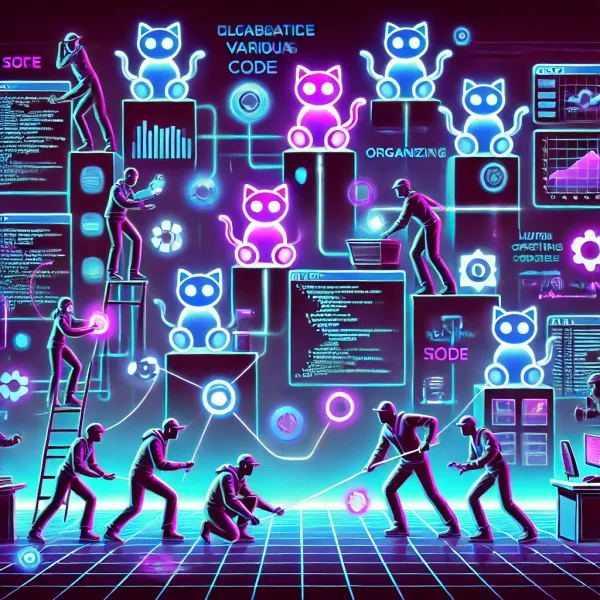Adapting to New Tech Tools Quickly
Learn how adaptability in tech tools can advance your software engineering career and keep you relevant in a fast-paced industry.

Sitting still is akin to moving backward as a software engineer. The tech industry evolves at breakneck speed, and if you're not adapting, you're already obsolete. With that said, adaptability isn’t just a buzzword; it’s a crucial soft skill that every software engineer needs to master. Whether it's a new programming language, a shiny framework, or a tool that promises to make life easier, the ability to embrace change can make or break your career.
🔑 Key Takeaways 🔑
- Adaptability is critical for keeping up with industry standards and project requirements.
- Continuous learning is your best friend; never stop expanding your skill set.
- Flexibility in your work environment is essential for collaboration and productivity.
- Embracing change means being open to new ideas and methodologies.
- Showcase your adaptability on your resume with concrete examples and metrics.
Importance of Adaptability
Let’s get real: adaptability is not just a nice-to-have; it’s a must-have. In software engineering, being adaptable means you can keep pace with changing technologies, project demands, and team dynamics. Think of it like this: if you’re a ship at sea, adaptability is your ability to navigate through storms. Without it, you’re likely to capsize.
The tech landscape is littered with stories of once-prominent languages and tools that have fallen by the wayside. If you don’t keep learning and adjusting, you risk becoming irrelevant.
Key Aspects of Adaptability
1. Learning New Skills
Learning is not optional. You’ve got to be willing to embrace new programming languages, frameworks, and tools. This means stepping out of your comfort zone—yes, the one you’ve wrapped yourself in like a warm blanket.
Here’s a tip: enroll in courses, bootcamps, or certificate programs that challenge you. The more diverse your skill set, the more tools you have in your toolbox.
2. Flexibility in Work Environment
Adaptability goes beyond just learning new skills; it’s about adjusting to different work environments. Whether it’s remote collaboration, working with distributed teams, or juggling multiple time zones, you’ve got to be flexible.
Pro Tip: If your team suddenly shifts to a hybrid model, don’t whine about it. Instead, embrace it. Find new ways to communicate and collaborate. Your ability to adapt will keep the team functioning smoothly, even in chaos.
3. Embracing Change
Let’s face it: change is the only constant in tech. New problems will arise, and methodologies like Agile will demand your attention. Be open-minded. When a new technology surfaces, don’t be the skeptic in the room; be the innovator.
Remember: the best engineers are not just problem solvers; they are problem seekers. They look for ways to improve and evolve.

Demonstrating Adaptability on a Resume
Now, how do you show potential employers that you can adapt quickly? Here’s how to make your resume shine:
- Highlight Projects: Discuss specific projects where you had to adapt to new technologies or tools swiftly. Detail how you integrated these new elements successfully.
- Use Keywords: Tailor your resume to include keywords related to adaptability and flexibility. These should come directly from the job description—this shows you’re a perfect fit.
- Quantify Achievements: Numbers speak louder than words. For example, say, “Successfully adapted to a new framework within 3 months, resulting in a 20% increase in project efficiency.”
Practical Tips for Developing Adaptability
1. Continuous Learning
The learning never stops. Read industry blogs, attend webinars, and join online forums. Keeping up with the latest technologies and tools is crucial for staying relevant.
2. Collaboration and Feedback
Work with others. Feedback is your best friend. Collaborating with fellow developers opens up new perspectives and helps you learn from their experiences.
3. Practical Experience
Get your hands dirty. Internships and hands-on projects are gold mines for practical experience. They allow you to apply what you’ve learned in real-world scenarios.
4. Self-Awareness
Know yourself. Recognize your strengths and weaknesses. Being humble enough to ask for help when needed is a sign of strength, not weakness.
Conclusion
Adaptability is not just a soft skill; it’s your secret weapon in the software engineering battlefield. By learning to adapt to new technologies and tools, you’ll not only enhance your career prospects but also position yourself as an invaluable asset in any team.
So, what are you waiting for? Start expanding your skill set, embrace the chaos of change, and show the world you’re ready to conquer whatever comes your way. Your future self will thank you!




